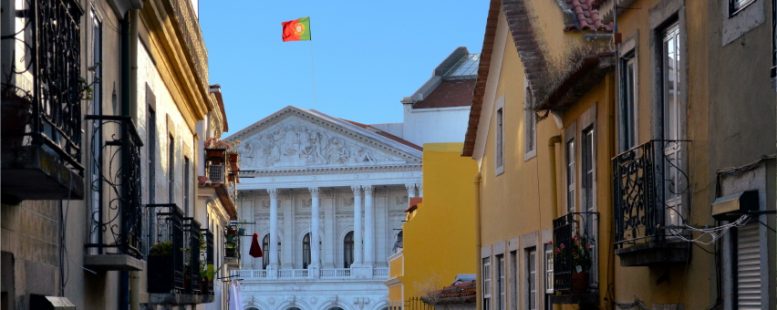Our Opinion: 2019
Portugal : A Euro Success Story facing political challenge

Portugal is often described as somewhat of a success story in the Euro zone after embarking on deep austerity measures in the wake of the sovereign debt crisis. It has enjoyed growth rates above the region’s average for the last two years.
However, its recent economic achievement is largely on the back of higher export levels – something that could become a problem given the ongoing trade disputes worldwide.
Following Sunday’s election, I am in Lisbon and talk is of nothing but the complexities the winner will have in securing a workable coalition. Now a new political cycle is beginning, economists are questioning how long Portugal’s economic recovery will last. The country is now more integrated in the global trade system than before the crisis.
In 2010, one year prior to requesting financial assistance from the International Monetary Fund (IMF) and the EU, Portugal exported about 37.3 billion Euros. Since then, exports have increased almost every year, reaching about 58 billion Euros in 2018, Exports accounted for more than 40% of the country’s growth rate in 2018 compared to almost 30% in 2010.
Whilst the Portuguese economy is projected to grow faster than that of the Euro zone as a whole, a sharper than expected global and European downturn would expose the persistent underlying macroeconomic imbalances.
António Costa, Portugal’s Socialist prime minister, faces weeks of delicate talks on forming a new left-wing pact after winning the country’s general election but failing to secure an overall majority. His centre-left Socialist party (PS) polled almost 37% of the vote in Sunday’s ballot to win 106 seats in parliament, 20 more than in the previous election four years ago, but 10 seats short of an outright majority.
Mr Costa’s victory is the latest sign of a resurgence among Europe’s traditional social democratic parties following victories for the centre-left in national elections in Denmark, Spain, Finland and Sweden. But his failure to win an outright majority could pose a risk to Portugal’s political stability if he runs into difficulties in putting together a working majority or a new alliance falls apart amid an economic downturn. The centre-right Social Democrats (PSD), the main opposition party, lost 12 seats and the smaller conservative People’s party (CDS-PP) lost 13, giving left-of-centre parties a majority of 27 in the 230-seat parliament, up from eight previously.
None of the smaller left-wing parties are seeking a role in government, and shaping a second version of the pact that supported Mr Costa’s minority administration over the past four years could prove long and complex.
The Left Bloc said it would press for concessions over labour legislation, pensions, public investment, housing and climate change. Such demands could prove problematic for Mr Costa as Europe prepares for a global downturn. Mário Centeno, who is expected to continue as finance minister, has pledged budget surpluses from 2020 onwards to protect Portugal from negative external impacts, potentially leading to budget tensions with left-wing partners. Mr Costa said he was open to a new deal, but a new government pact could be further complicated by an increase in the fragmentation of parliament.
Weeks of coalition talks are likely.
8th October 2019
